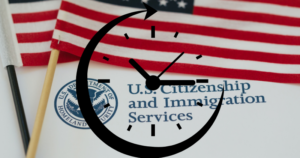
When applying for a marriage-based green card through adjustment of status, it’s not just your current marriage that matters—USCIS will carefully review the marital history of both the petitioner (the U.S. citizen or lawful permanent resident) and the beneficiary (the green card applicant). Ensuring that all previous marriages have been properly dissolved is a critical part of the application process.
1. Requirement to Prove Full Termination of All Previous Marriages
USCIS requires clear proof that all previous marriages for both the petitioner and the beneficiary have ended in full legal dissolution or death. Without such proof, the current marriage is not legally valid under U.S. immigration law, and the application will be denied.
2. What Proof is Needed?
Applicants must provide certified documentation showing the end of any prior marriage, including:
- Final divorce decrees
- Annulment orders
- Death certificates (if a previous spouse has passed away)
These documents must be official, certified copies issued by the appropriate authority in the jurisdiction where the marriage ended.
3. Dissolution Must Be Legal Under the Laws of the Country Where It Occurred
It doesn’t matter where the previous marriage was dissolved, as long as the dissolution was legal under the laws of that country. USCIS recognizes divorces or annulments from other countries as long as they comply with local legal standards. If the dissolution was legitimate in the country where it occurred, USCIS will generally consider it valid for immigration purposes.
4. Bigamy and its Consequences for Adjustment of Status
If a previous marriage was not legally terminated, USCIS will consider the current marriage to be bigamous. A bigamous marriage is not valid under U.S. law, and any application for adjustment of status based on that marriage will be denied.
This can have serious consequences, including:
- Denial of the adjustment of status application
- Potential accusations of fraud if the petitioner or beneficiary knowingly submitted false or incomplete information
5. Mistaken Belief About the End of a Previous Marriage
In some cases, individuals mistakenly believe that a previous marriage was properly terminated, only to later discover that it wasn’t. This can happen when:
- A divorce proceeding was never finalized
- A previous spouse obtained a divorce in another jurisdiction without proper notification
- An annulment or dissolution was not legally recognized
What to Do in This Situation
If you discover that a previous marriage was not legally dissolved before entering into your current marriage, the best course of action may be to:
- Nullify the current marriage (through annulment or dissolution).
- Complete the legal dissolution of the previous marriage to ensure it is properly terminated.
- Remarry your current spouse once the previous marriage is legally ended.
- File for adjustment of status after the remarriage.
Taking these steps helps ensure that the marriage is valid under both U.S. law and the immigration process. USCIS takes these matters seriously, so correcting any issues before applying can save you time, money, and stress.
Conclusion
When applying for a marriage-based green card, it’s essential to provide proof that all previous marriages for both the petitioner and beneficiary have been fully and legally dissolved. If there are any uncertainties about past dissolutions or if you’ve discovered an issue with your marital history, it’s important to resolve it before filing your adjustment of status application. Ensuring the validity of your current marriage is crucial to avoid complications or denial by USCIS.
Contact Us for Guidance with Your Adjustment of Status Case
If you have concerns about previous marriages or need help preparing your marriage-based adjustment of status application, contact Gabriel Sandoval at GS LAW, APC. Our experienced team can guide you through the process and help you avoid common pitfalls.
📍 Office Address:
GS LAW, APC
15260 Ventura Blvd. Ste 1200
Sherman Oaks, CA 91403
📞 Toll Free: (800) 919-8959
📞 Local: (213) 725-2919
✉️ Email: info@gslawoffice.com
www.gslawoffice.com

